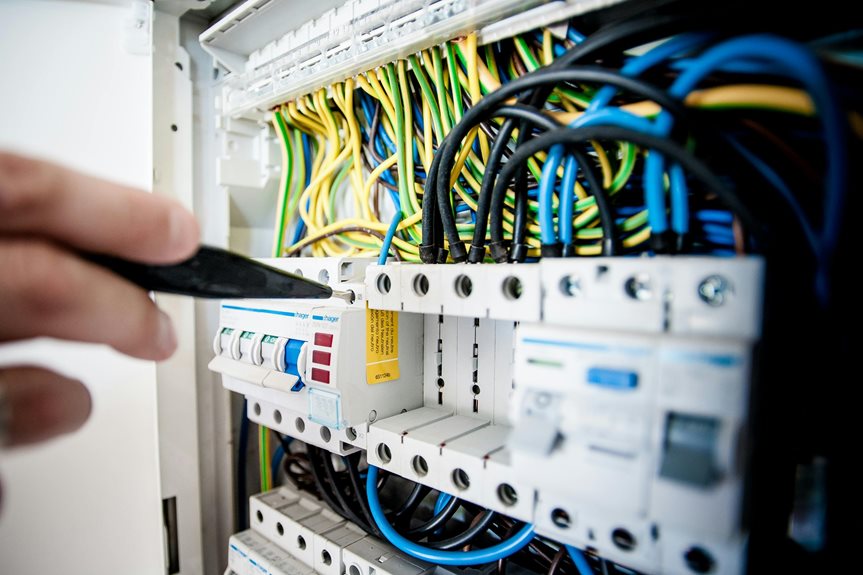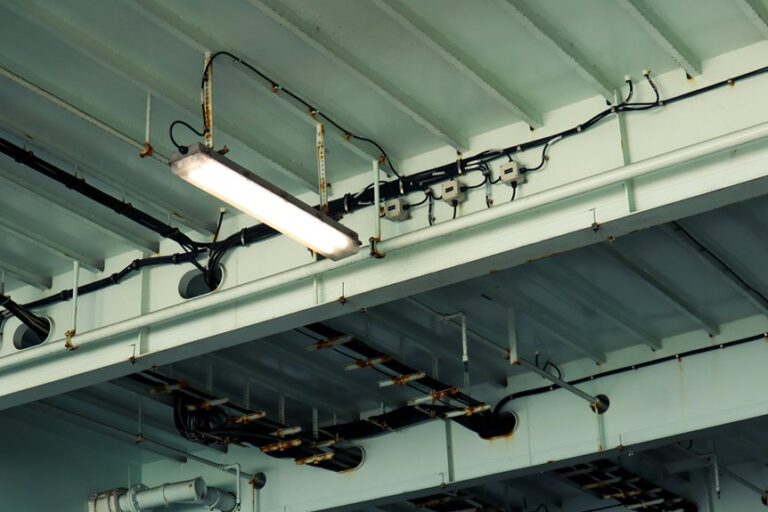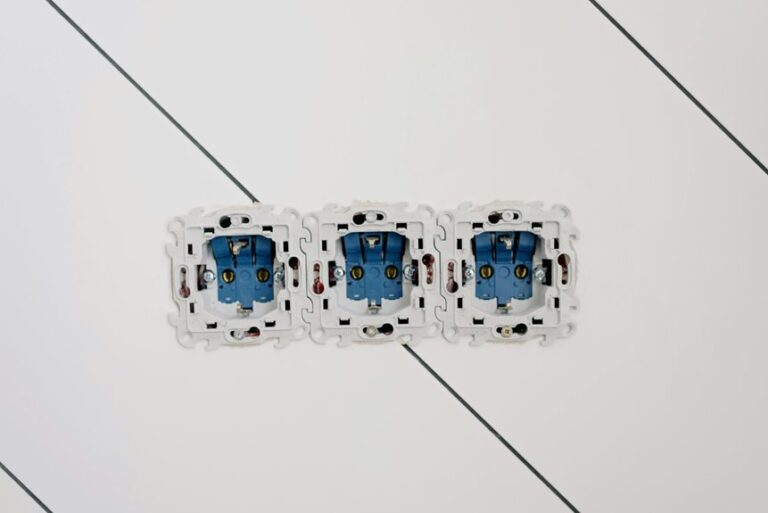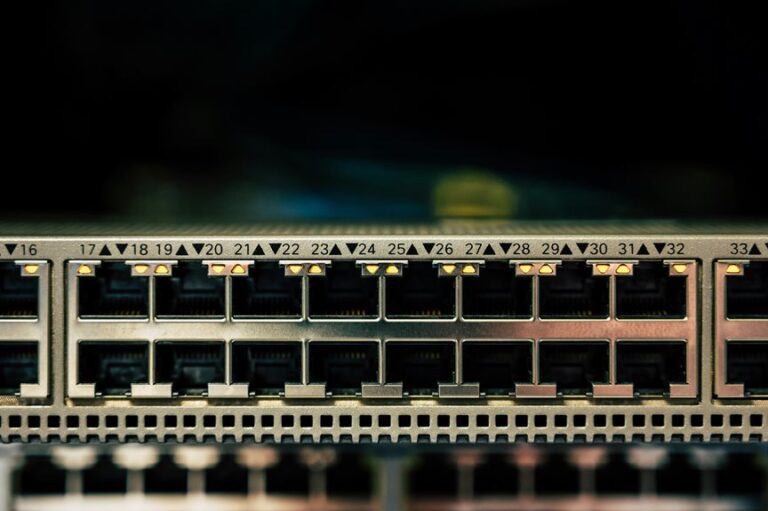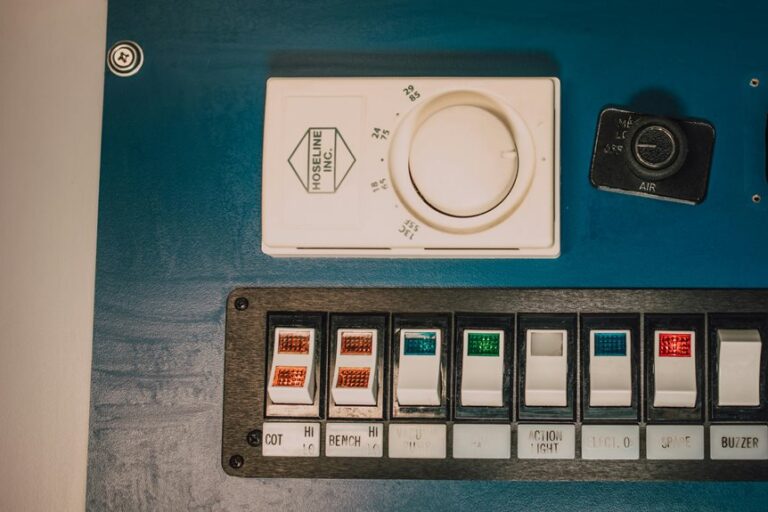Did you know that nearly 30% of home electrical fires stem from faulty wiring or equipment? If you're experiencing issues like frequent circuit breaker trips or flickering lights, it's vital to address these problems promptly to guarantee your home's safety. Understanding the types of electrical panels and the repair process can help you make informed decisions. However, effective repairs also hinge on recognizing when to seek professional help and knowing essential safety precautions. What steps should you take to avoid costly mistakes and guarantee a reliable electrical system?
Importance of Electrical Panels
Electrical panels play an essential role in managing your home's electrical system. They serve as the central hub, distributing electricity throughout your residence while ensuring safety and efficiency. By controlling the flow of electrical current, these panels help prevent overloads and reduce the risk of electrical fires.
When you flip a switch or plug in a device, the electrical panel directs power from the main supply to the appropriate circuits. This process is critical for maintaining the functionality of your appliances, lighting, and HVAC systems.
Additionally, modern electrical panels come equipped with circuit breakers, which automatically shut off power to circuits experiencing overloads or faults, further enhancing safety.
Proper maintenance and timely upgrades of your electrical panel are crucial for accommodating your household's electrical demands, especially as you add new devices. An outdated or malfunctioning panel can lead to inefficiencies and potential hazards.
As a result, recognizing the importance of your electrical panel isn't just about convenience; it's about ensuring a safe living environment. Regular inspections by a qualified electrician can help identify any issues before they escalate, safeguarding both your home and family. Furthermore, having reliable electricians perform these inspections ensures that your electrical system remains in optimal condition.
Common Signs of Issues
You should be alert to frequent circuit breaker tripping, as this often indicates an overload or fault in your electrical system.
Flickering or dimming lights can signal issues with wiring or connections that need immediate attention.
Additionally, if you detect a burning smell or odor near your electrical panel, it's essential to address the problem right away to prevent potential hazards. Regular electrical system maintenance can help identify and resolve these issues before they escalate.
Frequent Circuit Breaker Tripping
When a circuit breaker trips frequently, it's often a clear sign of underlying issues within your electrical system. This persistent tripping can indicate an overload, where the circuit is drawing more current than it can handle.
Check your appliances and devices; if they're too many for a single circuit, it's time to redistribute the load.
Another potential cause is a short circuit, which occurs when a hot wire touches a neutral wire, creating a path of least resistance. This can result in overheating and poses serious fire risks.
If you suspect this, don't attempt to diagnose it yourself; call a qualified electrician.
Ground faults are another concern. These happen when the current escapes its intended path and can lead to electric shock.
If you're using devices near water, make sure that ground fault circuit interrupters (GFCIs) are installed and functioning properly.
Lastly, consider the age and condition of your circuit breaker. A worn or faulty breaker might trip more frequently than necessary.
If you're experiencing repeated tripping, it's essential to address the issue promptly to guarantee the safety and efficiency of your home's electrical system.
Flickering or Dimming Lights
Flickering or dimming lights can be a frustrating problem, and they often signal underlying electrical issues that require immediate attention. This symptom can indicate a loose connection, faulty wiring, or an overloaded circuit. When you notice lights flickering, it's vital to investigate the cause promptly to prevent potential hazards.
First, check if the flickering occurs with specific fixtures or throughout your home. If it's localized, the issue may lie within that individual fixture or its wiring. Conversely, widespread flickering might suggest a more significant problem in your electrical panel or service line.
Overloaded circuits are another common culprit. If you've recently added new appliances or devices, the existing circuit may not support the increased load, leading to dimming lights. Review your circuit usage and consider redistributing the load across different circuits.
Lastly, don't overlook the importance of light bulb types. Some bulbs, especially older or incompatible ones, can flicker or dim unexpectedly. Always verify your bulbs are compatible with your fixtures.
If you're unable to identify or resolve the issue, consulting a licensed electrician is essential for safety and compliance with electrical codes.
Burning Smell or Odor
Experiencing a burning smell or odor in your home can be a serious warning sign of electrical issues that demand immediate attention. This scent often indicates overheating wires, damaged insulation, or a malfunctioning electrical panel. If you notice this odor, it's essential to act promptly.
First, turn off the main power supply to your home to prevent potential fire hazards.
Next, inspect your electrical panel and outlets for any visible signs of damage, such as scorch marks, melted plastic, or frayed wires. If you find any, don't attempt to fix them yourself. These issues often require professional intervention.
Additionally, consider the age and condition of your electrical system. Older wiring may not handle modern electrical loads, leading to overheating.
If the burning smell persists even after turning off the power, evacuate your home and call emergency services immediately.
Types of Electrical Panels
When you're evaluating your electrical system, it's essential to understand the different types of electrical panels available.
Main breaker panels, subpanels, and load centers each serve specific functions in managing electrical distribution safely.
Specialty electrical panels can cater to unique requirements, ensuring your system operates efficiently and securely.
Main Breaker Panels
In modern electrical systems, main breaker panels serve as the vital hub for managing your home's electrical supply. These panels are designed to protect your home's wiring and appliances by controlling the flow of electricity and providing a means to disconnect power in emergencies. Understanding their components and functions is important for safety and efficiency.
When you look at main breaker panels, consider the following key features:
- Main Breaker: This device shuts off the entire electrical supply to your home, guaranteeing safety during maintenance.
- Circuit Breakers: Each circuit breaker controls specific circuits, providing overload protection.
- Bus Bars: These conductors distribute electricity to the individual circuit breakers.
- Grounding System: This safety feature prevents electrical shock and protects your home from electrical surges.
Regular inspections and timely repairs of your main breaker panel can prevent potential hazards. If you notice any flickering lights, tripped circuits, or burning smells, it's vital to contact a qualified electrician immediately.
Neglecting these issues can lead to serious electrical failures and pose significant safety risks. Prioritize your home's electrical health to guarantee a safe living environment.
Subpanels and Load Centers
Main breaker panels are often complemented by subpanels and load centers, which play a significant role in distributing electrical power throughout your home.
Subpanels allow you to extend the electrical capacity of your main panel, providing additional circuit breakers for specific areas or appliances. This is particularly useful for renovations, garages, or outdoor spaces where you need power but want to avoid overloading the main panel.
Load centers, similar to subpanels, serve as secondary distribution points. They can enhance safety by localizing circuit protection, reducing the risk of overloads and potential fire hazards.
Properly installing a subpanel or load center requires adherence to local electrical codes, ensuring that the system is grounded and adequately sized for your needs.
When adding a subpanel or load center, consider the total load and the number of circuits required. It's crucial to consult with a licensed electrician to evaluate your current system and determine the best configuration.
Specialty Electrical Panels
Understanding specialty electrical panels is vital for meeting specific electrical needs in various applications.
These panels cater to unique requirements that standard panels may not fulfill. By knowing the types of specialty panels available, you can guarantee your electrical system operates safely and effectively.
Here are some common types of specialty electrical panels:
- Generator Panels: These control the connection between your generator and home, guaranteeing a safe transfer of power.
- Surge Protection Panels: Designed to protect your electrical system from voltage spikes, these panels help safeguard sensitive equipment.
- Submetering Panels: These panels monitor energy consumption for specific areas or tenants, helping you manage costs and efficiency.
- Smart Panels: Equipped with advanced technology, smart panels allow for remote monitoring and management of energy usage.
When selecting a specialty electrical panel, consider your specific requirements and consult a licensed electrician.
Proper installation and maintenance are vital for safety, guaranteeing that your electrical system meets local codes and standards.
Always prioritize safety when dealing with electrical components, as improper handling can lead to hazards.
Repair Process Overview
When addressing electrical panel repairs, it's crucial to follow a systematic approach to guarantee safety and effectiveness. Start by evaluating the panel's condition. Look for signs of wear, damage, or corrosion. If you notice any issues, power down the entire system to prevent shocks or further damage. Always use a multimeter to verify that the panel is de-energized.
Next, remove the panel cover carefully. Check for loose connections, burnt wires, or faulty breakers. Tighten any loose screws and replace any damaged components. Make sure to use parts compatible with your specific panel model to maintain functionality and safety.
Once you've completed your repairs, reattach the panel cover securely. Restore power to the system gradually, monitoring for any unusual sounds or smells. If everything checks out, you can confirm the repair's success. Document any changes made for future reference.
Finally, conduct a thorough inspection of the entire electrical system. This not only guarantees the integrity of your repair but also helps identify potential future issues. By following this structured process, you can maintain the reliability and safety of your electrical panel. Additionally, it's advisable to consult with top electricians who can offer expert advice and services in San Bernardino.
Safety Precautions to Consider
Before diving into electrical panel repairs, it's vital to prioritize safety precautions. Electrical work can be hazardous if proper measures aren't taken, so you need to equip yourself with the right knowledge and tools before starting.
Here are some essential safety precautions to take into account:
- Turn Off Power: Always switch off the main breaker before you begin any work on the panel. This minimizes the risk of electric shock.
- Use Personal Protective Equipment (PPE): Wear insulated gloves and safety goggles to protect yourself from potential electrical hazards and debris.
- Verify Power is Off: Use a multimeter or voltage tester to confirm that the power is indeed off. Never assume that the panel is safe to work on.
- Keep a Clear Workspace: Make sure your work area is free from clutter and that you have a clean path for any tools or equipment you need. This reduces the risk of accidents.
DIY vs. Professional Repairs
Frequently, homeowners grapple with the decision of whether to tackle electrical panel repairs themselves or to hire a professional.
While DIY repairs can seem tempting, it's essential to recognize the risks involved. Electrical panels are complex and require a strong understanding of electrical systems and safety protocols. If you're not experienced, you could inadvertently create unsafe conditions, risking fire hazards or electrocution.
On the other hand, hiring a licensed electrician guarantees that repairs are conducted safely and in compliance with local codes. Expert electricians in Rancho Cucamonga can provide tailored solutions for your specific needs.
Professionals have the necessary training, tools, and experience to diagnose issues accurately and implement effective solutions. They also carry liability insurance, protecting you from potential costs related to accidents or damages.
If you're considering DIY repairs, assess your knowledge level and comfort with handling electrical systems.
Always prioritize safety—if you have any doubts, it's best to call in an expert.
Remember, electrical work that's improperly done can lead to more significant problems down the line, including costly repairs or safety risks.
Weigh your options carefully; sometimes, the best decision is to leave it to the professionals.
Cost of Electrical Panel Repairs
Choosing whether to handle electrical panel repairs yourself or hire a professional also brings financial considerations into play. The costs can range considerably depending on the complexity of the repair, the materials needed, and labor charges if you opt for professional help.
Here's a breakdown of potential expenses you might encounter:
- DIY Costs: Materials like circuit breakers or wiring can cost anywhere from $10 to $100 each.
- Professional Fees: Hiring an electrician typically costs between $65 to $130 per hour, plus parts.
- Permit Fees: If local regulations require permits, you may pay an additional $50 to $200.
- Emergency Services: If you need urgent repairs, expect to pay a premium, potentially doubling the standard rates.
Keep in mind that while DIY repairs might seem economical, they carry risks.
Mishandling electrical components can lead to severe safety hazards, making it crucial to prioritize safety over savings. Assess your skill level honestly.
If you're uncertain, investing in a professional service not only protects your home but also guarantees the repair complies with local codes.
Maintenance Tips for Longevity
Regular maintenance of your electrical panel is essential for guaranteeing its longevity and safe operation. Start by inspecting the panel at least once a year for any signs of wear, corrosion, or loose connections.
Make sure to turn off the main power supply before conducting any inspections to avoid electrical shock.
Check for tripped circuit breakers or blown fuses; these can indicate underlying issues that need addressing. If you notice any unusual odors, sounds, or heat emanating from the panel, contact a licensed electrician immediately.
Keep the panel clean and free of dust and debris, as these can impede airflow and lead to overheating. Use a soft brush or a vacuum cleaner with a brush attachment to maintain cleanliness.
Label all circuits clearly to guarantee easy identification during troubleshooting. This can save you time and reduce the risk of error when performing maintenance.
Finally, consider scheduling a professional inspection every few years. This will help identify potential issues before they escalate, reinforcing the safety and efficiency of your electrical system.
Regular attention to these details will extend the life of your electrical panel while guaranteeing safe operation.
Conclusion
To summarize, addressing electrical panel repairs promptly can save you from severe safety hazards and costly future repairs. Just as a flickering light might signal a deeper issue, your proactive approach can lead to unexpected benefits, like improved energy efficiency. Whether you choose to tackle minor fixes yourself or call in a professional, remember that safety always comes first. Regular maintenance not only extends your panel's life but also fortifies your home against unforeseen electrical failures.

